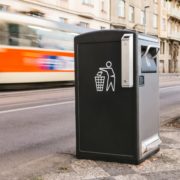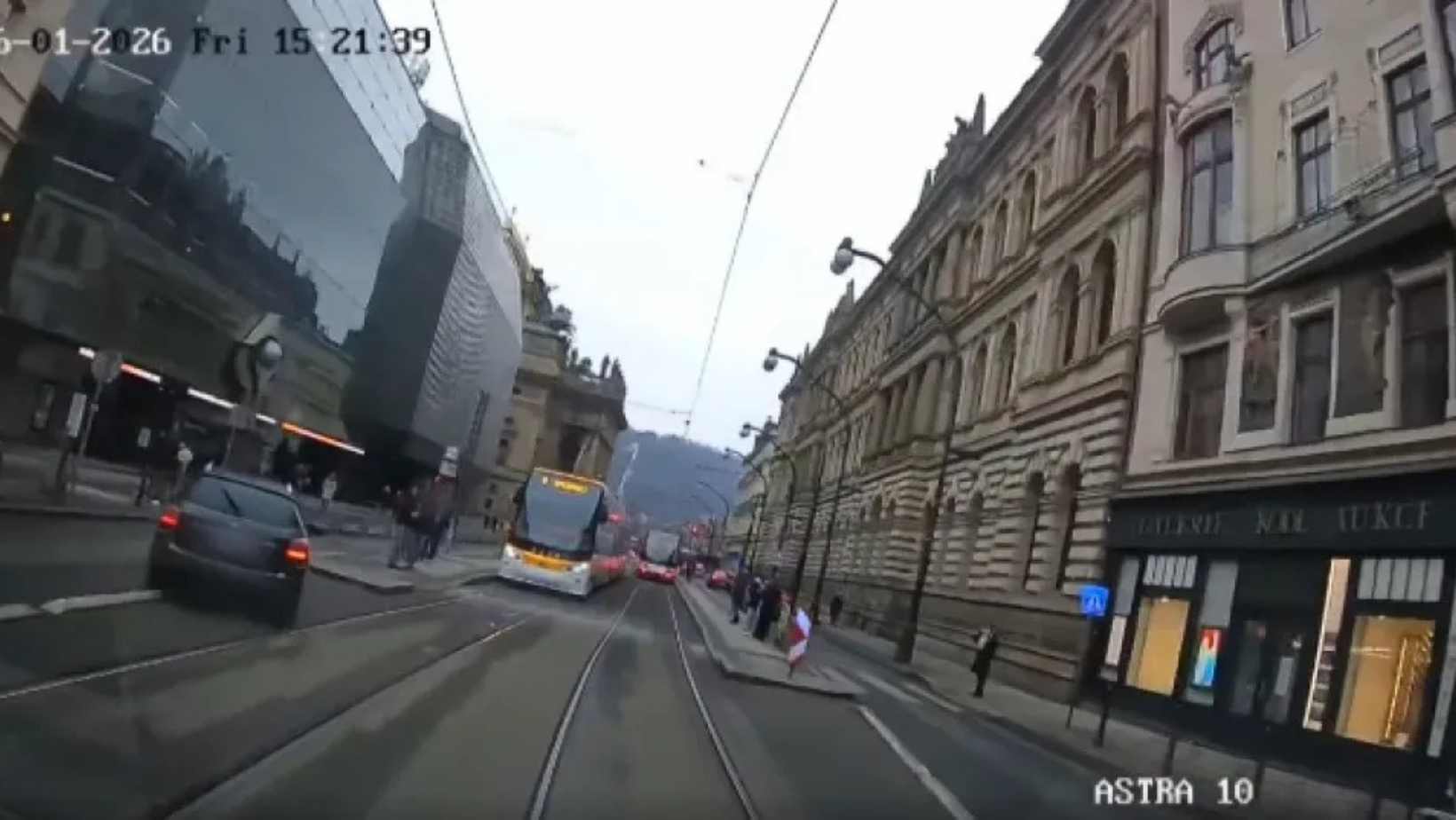How To Recycle in Prague: Bring Your Recycling Routine to the Next Level
Prague Morning

Everyday life creates a lot of waste, and while it would be ideal if our waste could be kept to a minimum, oftentimes it is simply inevitable.
The vast majority of products come in packaging, and that packaging often gets disposed of unsustainably because we lack the information on how and where to recycle the various items and materials that can’t be placed into the usual yellow, blue and green recycling bins. This guide will help you learn exactly how to recycle in Prague.
The color-coded Bins
The color-coded bins are the basics of recycling. Although most of us are familiar with them, they are still often filled with items that do not belong there. To recycle efficiently, we should avoid filling them with items that belong elsewhere. Here is a reminder of what belongs where.
The Yellow Plastic Bin
Is suitable for plastic bottles and bags, plastic containers from cosmetics and cleaning products, CD cases, polystyrene, plastic foil such as cling film, and other plastics. When disposing of plastic bottles, be sure to crush them beforehand to save valuable space. The materials that do not belong into the yellow plastic bin include PVC, rubber, textiles made of plastic fibers, Tetra Pak containers (these are typically milk and other beverage containers), and the wrappers and containers of hazardous chemicals such as glue, solvents, oils, and paint, among others.
Please ensure that the plastic containers you place in the yellow recycling bin are empty and clean or they will be removed from the recycling process and will not be recycled. Toothpaste tubes, although they are plastic, cannot be placed in the yellow bin, as they are often lined with aluminum and contain leftover toothpaste. Greasy containers are also unacceptable.
The Blue Paper Bin
The things that definitely belong in the blue paper bin are paper wrappers and packaging, newspapers and magazines, flyers, cardboard and cardboard boxes, books, and also office documents with staples and envelopes with plastic address windows. You should never throw in greasy, wet, waxed, or charcoal paper, or paper that has been otherwise degraded. Receipts do not belong in the paper bin! Look for the symbols PAP 20, PAP 21, PAP 22 and PAP 39 on your paper items, these ensure that they are safe to recycle.
The Green and White Glass Bins
The green container is for colored glass and the white container is for clear glass. If only one bin is available, you are allowed to dispose of any glass. The glass that can be thrown in the green bin are bottles, medicine containers, opaque glass, and the glass filling of doors and windows. You must never throw in ceramics, porcelain or china, any glass treated with metallic coating, glass from cars, laboratory glassware, and objects made of cooking glass. The white glass bin is suitable for clear glass and glass jars. You must not dispose of large glass panels and stained glass. The symbols that indicate your item is safe to recycle include GL 70, GL 72, GL 71, and GL79.
The Orange Recycling Bin
This bin is for beverage containers. You can dispose of wine boxes, dairy product boxes, juice boxes and other Tetra Pak containers. You should always compress them to reduce their size before disposing of them.
The Brown Organic Waste Bin
The brown bin is a new addition to the recycling bins. It’s best for plant-based kitchen and garden waste such as fruit and vegetables, peels, tea and coffee, grass, leaves, flowers, eggshells, and peat. You should not dispose of pet bedding, diapers, bones, meat, oil, patés and spreads, sauces, charcoal and ashes, cigarette butts, vacuum cleaner bags or any other waste that cannot decompose.
The Pink Hazardous Waste Bin
This bin is specially designated for waste that is dangerous for the environment. This includes anything corrosive, flammable or explosive, or toxic waste. This bin is also suitable for infectious or carcinogenic waste. Specifically, you can safely dispose of paint, paint thinners, solvents and other chemicals, pesticides, glue and paint, acids, batteries, car batteries, ink, electronics, medicine, lightbulbs, refrigerators, and coolers. Please refrain from disposing of ordinary waste.
The Red Electronic Waste Bin
You can return the vast majority of electronics to the retailer. For small electronic waste, batteries and lightbulbs you can use the red bins. Another option of how to recycle lightbulbs in Prague is to take them to one of the 1384 lightbulb recycling points throughout the city. You can find these here.
The Grey Metal Bin
Here you can recycle the metal lids from food and dairy products tinfoil, and tins. You can also recycle aerosol cans once they have been completely emptied. Look for silver grey bins labeled “kovové odpady”. For larger pieces of metal waste, go to a recycling center. A list of recycling centers in Prague is available below in the article.
The Difficult to Recycle Items
Some items and materials cannot be recycled as readily. However, there are still options to dispose of them correctly. CDs currently cannot be recycled in Prague and the Czech Republic. It is best to down-cycle them into a creative project or throw them into the black mixed waste bins. If you find some old tapes or vinyls, those must also be disposed of in general waste.
If the item you wish to recycle features the symbol C/ it is made of composite materials and cannot be recycled. These items belong in the general waste bin. The only exception is C/PAP, which are drinking containers, and those belong in their designated bins as mentioned above.
Cigarette butts are among the top ocean pollutants. However, little effort is being made to actively ensure they can be recycled. Thus, whatever you do, please never toss them out in nature, as they are extremely damaging to the environment. They consist of difficult to break down materials and they release chemicals into the soil. Your safest bet is to dispose of them in a general waste bin or quit smoking.
Any medicine you no longer wish to take or that is expired must be returned to the pharmacy. It is strictly forbidden to dispose of medicine in general waste. Ink and toner should be returned to the retailer or disposed of in a designated bin for “inkoust a toner”, but those are currently difficult to find. They are also accepted in select Prague recycling centers, Pod šancemi 1 and Zakrytá street, and can only be accepted from citizens or long term residents.
Recycling Bioplastic in Prague
Bioplastic, the modern alternative to plastic made of oil, is currently difficult to dispose of. If it is available to you, you can compost them. Please keep in mind that although the manufacturers promise that bioplastic containers will decompose in a compost, this may not always be the case. The majority of bioplastic containers have to be incinerated. Until there is a consensus on what bioplastic consists of it cannot be recycled in the recycling system in Prague and the Czech Republic. The bioplastic containers cannot be disposed of in the yellow plastic bins or the brown organic waste bins.
How to Dispose of Textiles
Textiles and clothing can be placed into the orange textile recycling containers found throughout Prague. However, those containers are reserved for clothing and textiles that can still be worn. Please avoid disposing of damaged or soiled items in these bins. Damaged items that can no longer be worn belong in the general waste bin. The majority of textile waste is destined for a landfill, and only a small portion will be down-cycled into filler fabric or for other uses. You can also donate your used clothing to a local charity.
Where to Recycle Car Batteries and Tires in Prague
Car batteries should be taken to car repair shops or a recycling centre. Other batteries and can be recycled in battery bins usually found in shopping centers and electronic stores.
If you need to recycle tires in Prague or anywhere in the Czech Republic, you can do so at once of the locations listed in this PDF here.
The Correct Way to Dispose of Cooking Oil in Prague
Cooking oil is a common problematic waste item. There are rules for how to dispose of cooking oil in Prague. It is not recommended to pour oil into the sink or toilet. To correctly dispose of oil, pour it into a plastic container and dispose of it in a designated oil bin or the black general waste bin. You can also take your oil to a recycling center listed in the article. Here are some of the locations of the oil bins, or “kontejnery na oleje a tuky”:
- Čechova 310/1
- U Letenského sadu 1296/10
- Šternberkova 1259/5
- Ortenovo nám. 1494/14 (Holešovice)
- Tusarova 1316/17
- Přístavní 1079/29
- Pod Slovany – Plavecká (Nové Město)
- Koubkova 1 (Nové Město)
- Václavská 20 (Nové Město)
- Sekaninova 30 (Nusle)
- Sázavská 13 (Vinohrady)
- Vinohradská 38 (Vinohrady)
- Londýnská – Záhřebská (Vinohrady)
- Polská 4 (Vinohrady)
- U Kanálky 8 (Vinohrady)
- Vratislavova 16 (Vyšehrad)
A Search Engine for Recycling and Waste Disposal
Kamsnim.cz is a search engine for waste disposal locations. Although the website is in Czech it is very easy to navigate. You can click the search bar and the page will suggest icons for the type of waste you wish to dispose of. They will provide you with a map of locations where to recycle in Prague. Check it out here.
Prague Recycling Centers
These recycling centers, also known as collection yards or “sběrný dvůr” in Czech, collect large items intended for recycling. They will collect large pieces of scrap metal, large foam items such as mattresses and yoga mats, and furniture. They will also accept household appliances, wooden waste, biodegradable waste, all the waste destined for the color-coded recycling bins, batteries, and oil. They may also collect tires but this is often for a fee. Since these yards collect almost all domestic waste, they make it easy to recycle in Prague.
All of the listed recycling centers are open from Monday to Friday 8:30 to 18:00 (17:00 in the winter) and 8:30 to 15:00 on Saturdays. You might be asked to present an ID when you dispose of your waste, this is to deter metal thieves and other illicit activity. Here are some of the Prague recycling centers:
Sběrný dvůr hlavního města Prahy
Pod Šancemi 444/1, Praha 9 – Vysočany
tel: 739 682 180
Sběrný dvůr hlavního města Prahy
Proboštská 1, Praha 6 – Dejvice
tel: 736 518 204
Sběrný dvůr hlavního města Prahy
Za zastávkou 3, Praha 15– Horní Měcholupy
tel: 733 164 810
Sběrný dvůr hlavního města Prahy
Bečovská, Praha 22 – Uhříněves
tel: 731 122 905
Sběrný dvůr hlavního města Prahy
Zakrytá, Praha 4 – Záběhlice
tel: 731 122 891
Sběrný dvůr hlavního města Prahy
Jilemnická, Praha 19 – Kbely
tel: 731 626 416
Sběrný dvůr hlavního města Prahy
Puchmajerova, Praha 5 – Jinonice
tel: 731 142 348
The waste management and recycling system is imperfect and it will take a long time and a lot of effort to create a truly efficient system where the majority of the products we use will be given a new life. Until then, we must do what we can, that is to try and reduce the amount of waste we produce in the first place, and to ensure that the waste we do inevitably produce is actually able to be recycled. Now you are all set to recycle in Prague!
-
NEWSLETTER
Subscribe for our daily news









